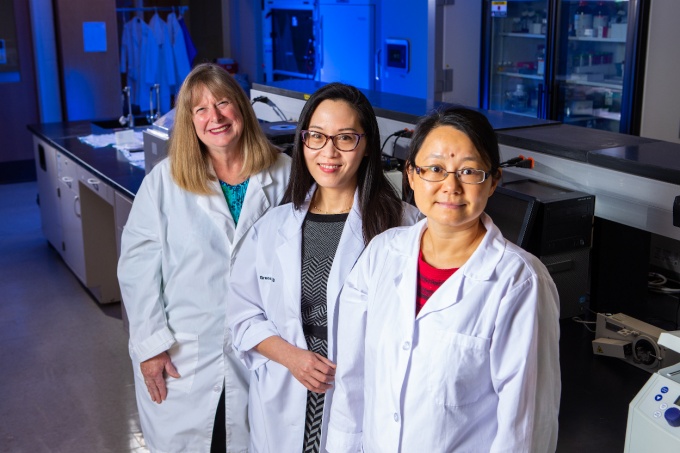Here is how we save lives by detecting cancer faster
UB awarded $3.5 million to create a quick blood test for lung cancer

A University at Buffalo-led research team is developing a new, low-cost blood test that aims to make lung cancer screening more widely available to millions of people.
Lung cancer is the second most common cancer in both men and woman in the United States. It is also the leading cause of cancer death in the U.S.
“Our goal is to develop a liquid biopsy test that’s simple, fast, accurate and cost-effective. If we do that, we can expand screening to millions of people, help catch lung cancer earlier and improve treatment plans for those suffering from this terrible disease,” says principal investigator Yun Wu, associate professor of biomedical engineering, a joint program of UB’s School of Engineering and Applied Sciences and the Jacobs School of Medicine and Biomedical Sciences.
The project is supported by two National Institutes of Health grants totaling more than $3.5 million. UB is partnering with investigators at Roswell Park Comprehensive Cancer Center, For-Robin and University of Southern California.
Boosting accuracy of blood tests
Oftentimes, lung cancer is not symptomatic until later stages, when it becomes especially difficult to treat. Screening is available, but methods are hampered by poor accuracy, radiation exposure, invasive procedures or high costs.
Wu and her collaborators are working on improving liquid biopsies by developing new techniques that more accurately spot early evidence of the disease. The team is developing a light-based biosensor that has the potential to simultaneously detect multiple types of biomarkers from tumors.
The researchers will also evaluate exosomal Thomsen-Friedenreich glycoantigen, an antigen that may be a potential biomarker for liquid biopsy screening.
The new test would allow doctors to take multiple blood samples over time, which can provide greater understanding of an individual’s response to cancer treatment.

